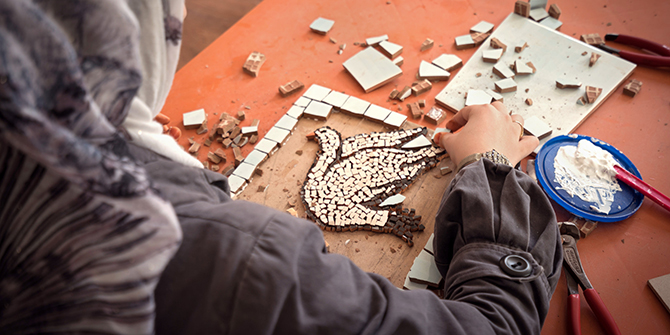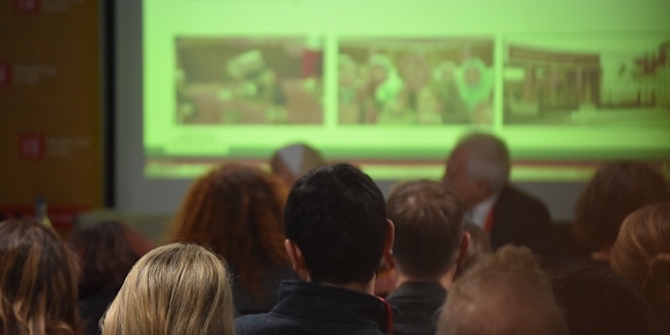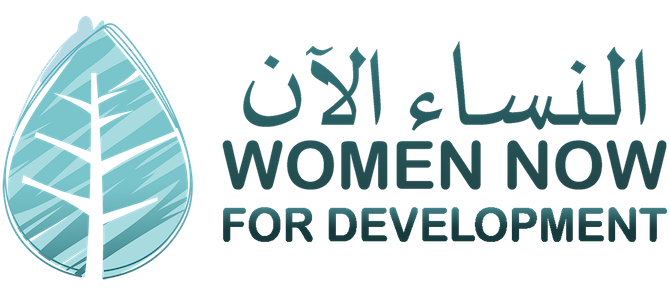by Marie Forestier

In March 2014, I met Noor* at her mother’s apartment in Gaziantep, the Turkish border town where many Syrian refugees had been living. Noor had recently fled from Damascus after being released from a detention facility run by one of the four Syrian intelligence services. Her face was inscrutable and since her release, she had refused to speak, at the despair of her mother and older sister. It hinted at the trauma she had experienced while she was detained for her anti-government activities. Noor was tortured and sexually abused by Syrian security forces during her detention.
Today, Noor, who is in her early thirties, lives in Europe and speaks enthusiastically about her studies in communication and her two young children. Last year, she was part of a criminal complaint for war crimes and crimes against humanity that was filed to a Prosecutor’s Office in Europe against Assad’s senior intelligence officials.
‘When I filed the complaint, I had conflicting feelings. On the one hand, it felt good as I have hope to obtain justice. On the other hand, I felt bad having to use the justice of a foreign country to sue Syrians. Your own government should protect you,’ Noor said.
Over the past years, several criminal complaints have been filed in Europe against Syrians, based on the principle of universal jurisdiction, according to which third states may investigate and prosecute international crimes, regardless of where they have been committed or the nationality of the alleged perpetrator. Universal jurisdiction has offered some hope and an avenue for Syrians seeking justice, including survivors of sexual violence, as the International Criminal Court has no jurisdiction over the country.
It required tremendous courage and determination for Noor to reveal publicly the abuses that she suffered during her detention, because of the continuous discrimination and stigma that is often attached to sexual violence in patriarchal societies. But she wanted to take action. ‘That’s the only thing I can do for Syrian people while I’m outside of Syria. I hope that one day my rights will be recognised and I can obtain justice,’ she said.
Sexual violence against women, men and children has been documented throughout the Syrian conflict. It has targeted people considered anti-regime and their relatives. Massive harassment of female prisoners, sexual assaults and repeated rapes have become part of the repressive arsenal of the Syrian security forces in order to humiliate, punish, dominate and subjugate the opposition. According to activists, even as violence has faded down in some parts of the country, Syrian woman continue to be subjected to sexual violence by security forces.
Thanks to the work of Syrian civil society organisations, lawyers and the European Centre of Constitutional Rights, nine complaints against Syrian officials have been filed in Germany, Austria, Sweden and Norway. These complaints target intelligence officials and high-ranking members of the Syrian security apparatus for crimes including torture, murder, rape and other forms of sexual violence, persecution on political grounds and deprivation of liberty – amounting to crimes against humanity.
These complaints have led to positive developments. In June 2018, the Germany Federal Court of Justice issued an international arrest warrant for Jamil Hassan, who until July 2019 was head of the much-feared Syrian Air Force Intelligence Service. According to a survivor’s testimony, Jamil Hassan was at least aware that sexual violence were committed in Air Force Intelligence facilities and did not act to stop them. An arrest warrant against him is a milestone towards justice and accountability and sends a strong signal to other perpetrators.
In April 2020, the world’s first trial on state torture in Syria started in Koblenz, Germany. Two former officials of the Syrian security apparatus are currently on trial for crimes against humanity.
Noor hopes that her complaint will also lead to arrest warrants. Several survivors who were also part of the complaint have given testimonies in front of European judges. Noor is waiting to do the same. But she thinks that justice is not enough to address the consequence of sexual violence. She longs for the day when officials who orchestrated repression against the opposition will leave power.
In addition to litigation, another path should be pursued in order to provide some measure of redress to survivors of rape and other forms of sexual violence. Until now, sexual violence has been absent from the formal peace discussions on the Syrian conflict. Peace agreements usually do not mention accountability for conflict-related sexual violence.
While negotiations have been stalled, any political agreement that will eventually bring an end to the Syrian conflict must include the conflict-related sexual violence dimension, complying with UN Security Council resolution 1820 (2008), which calls for internationally mediated peace talks to address conflict-related sexual violence. Measures such as including sexual violence in the definition of acts prohibited by ceasefires or excluding perpetrators of sexual crimes from amnesty are essential in order to achieve a durable peace.
In this regard, the meaningful participation of women in peace negotiation will guarantee that the issue is not bargained away for other concessions. In addition, efficient mechanisms that ensure that contributions from women’s advisory groups are genuinely included in discussions must be established. Meanwhile, sexual violence should not solely be considered a ‘female’ topic – it affects all of society and there also are male survivors. Therefore, male negotiators must also be engaged in this issue. Given the strategic nature of the sexual crimes in Syria, they must be addressed as a political issue in any peace settlement.
* Name has been changed in order to protect her identity
This is part of a series revisiting the Centre’s most popular blogs of the past decade, celebrating our tenth anniversary and asking the authors to return to their pieces and offer some updates. Read the introduction here, and see the other pieces below.
In this series:
- Introduction by Jack McGinn
- The 3000, Five Years Later: The Tunisians Who Joined Daesh by Youssef Cherif
- The Way Forward for Syrian Survivors of Sexual Violence by Marie Forestier
- Dishdasha Blues: Navigating Multiple Lived Experiences in the Gulf by Rana AlMutawa
- Sectarianism to Nationalism Reconsidered by Raad Alkadiri
- Caught in the Gulf Rivalry: Yemen’s Al Mahra Avoids the War Despite ‘Collateral Militarisation’ by Eleonora Ardemagni
- The Future of the Syrian Democratic Forces: One Year after the Liberation of Baghouz and the Turkish Invasion by Wladimir van Wilgenburg
- Biden’s Impending Billions to Palestine by Alaa Tartir
- Ruling Family Solidarity at the Expense of Bahrain’s Unity by Ali Al-Aswad
- Peacebuilding Without Protection? Yemeni Women’s Barriers to Peace by Rasha Jarhum






